
Writes: Xhelal Neziri
Since the beginning of Russian aggression in Ukraine (2022), the European Union (EU) has been working to accelerate the accession process for six Western Balkan countries and four Eastern European states. From a purely administrative process—in which accession candidates sign association and stabilization agreements, obtain candidate country status, and complete chapters in six groups (clusters)—EU integration has now become a geopolitical priority for Brussels. The harmonization of EU foreign policy toward Russia alone may not be enough as long as part of its sphere of influence, even the most problematic one such as the southeast, is completely exposed to problematic Russian and Chinese influences. The EU is therefore increasingly shifting its focus to this region, in parallel with its rapid rearmament under the strategic initiative “Rearm Europe,” for which €800 billion is expected to be spent by 2030. In addition, EU member states have significantly increased their defense budgets; Germany plans an annual defense budget of €153 billion, which is expected to be reached by 2029.
This transition from “soft power” to “hard power” heralds a new European paradigm in dealing with Russia and China. It implies sufficient political and security distance to ensure effective protection against their harmful influences. After 75 years of focusing on the economy—largely shaped by cheap energy imports from Russia—the EU is now taking responsibility for defense. This paradigm also implies a more concrete approach toward the Western Balkan accession candidates, most of whom claim to want to become members but are in fact undermining the process. This narrative has been successfully disseminated in Brussels, while European representatives have simultaneously pretended to want to expand the EU. Now that the EU has a more urgent interest in enlargement than the Balkan countries have in integration, its approach to the region will also change.
In addition to Albania and Kosovo, Russia also has a strong presence in Serbia, Bosnia and Herzegovina, North Macedonia, and Montenegro. Alongside Russia’s political and energy presence, the region is also a focus for China, which has a significant presence in the economies of these countries. An analysis of the European Commission’s (EC) latest progress reports on these countries, published on November 4, shows that one of the biggest obstacles to the European integration of the Western Balkans is precisely these foreign policy aspects of the accession candidates, which are determined by their national interests.
SERBIA – THE MAIN CHALLENGE
The report on Serbia emphasizes that Belgrade has made little progress in aligning itself with the EU’s Common Foreign, Security, and Defense Policy. It notes that high-level contacts with Russia have intensified, as have anti-Western narratives and participation in Russian military ceremonies. Even in this geopolitical conflict of interests, Serbia tends to pursue a “two-chair philosophy”: the report underscores that official Belgrade has not joined the EU sanctions against Russia, but continues to cooperate with the EU in circumventing them and providing humanitarian and financial aid to Ukraine. According to the report, information manipulation and hybrid threats continue to pose serious problems, particularly through the Russian broadcaster RT Balkan, which has been granted a license for state cable networks. Energy dependence on Russia remains high, and the rapid granting of Serbian citizenship to Russian citizens with visa-free access to the EU poses security risks. Hybrid threats and cyber vulnerabilities require stronger legal and operational measures, Brussels recommends. With regard to China, the EU is concerned that Serbia has signed a free trade agreement with China, which has been in force since June 1, 2024.
COMPLEX POLITICS IN BOSNIA AND HERZEGOVINA
Bosnia and Herzegovina’s complex system requires a complex approach to dealing with the EU on the one hand and Russia and China on the other. The country’s progress report confirms its alignment with the European Union’s Common Foreign and Security Policy, but notes that the implementation of restrictive measures against Russia is encountering obstacles, particularly from ministries controlled by Milorad Dodik’s SNSD. The authorities of Republika Srpska continue to maintain close ties with Russia, while public broadcasters remain politically influenced, allowing Russian disinformation to continue to be disseminated through media outlets such as RTRS.
Visa policy is partly incompatible with the EU, and hybrid threats, including cyberattacks and disinformation, continue to challenge institutional resilience. According to Brussels, the country needs a comprehensive foreign policy strategy, stronger mechanisms for implementing sanctions, and a clear framework for combating foreign information manipulation.
MONTENEGRO – LEADER IN EUROPEAN INTEGRATION, BUT WITH MANY CITIZENSHIPS GIVEN TO RUSSIAN CITIZENS
Montenegro is praised by the EU for taking in the largest number of Ukrainian citizens under temporary protection in the region and providing them with access to healthcare and accommodation above EU minimum standards. The EU remains Montenegro’s most important trading partner and main source of foreign investment, followed by Serbia, Russia, and Turkey. In foreign policy, Montenegro has fully aligned itself with the EU’s restrictive measures against Russia and Belarus, supported UN resolutions on Ukraine, and actively participated in combating hybrid threats, including cyberattacks and information manipulation.
However, Brussels has expressed similar concerns to Serbia regarding the granting of Montenegrin citizenship to Russian and Belarusian citizens. According to the report, in 2024, 1,282 people were granted Montenegrin citizenship under the investor program, whose applications were still being processed. The investor program ended on December 31, 2022. Among them were citizens of the Russian Federation (709), Belarus (42), and Saudi Arabia (29). The report emphasizes that “Montenegro should conduct the necessary security checks when reviewing the remaining applications for citizenship under the investor program and ensure that individuals subject to international sanctions are denied citizenship under this program.”
NORTH MACEDONIA – FULL ALIGNMENT WITH EUROPEAN FOREIGN POLICY
Skopje continues to uphold EU sanctions against Russia and supports Ukraine with humanitarian and military aid. According to the report, North Macedonia has stepped up its preparations for the EU’s Common Foreign, Security, and Defense Policy and is participating in EU crisis management measures. However, the country has been criticized for the complete and effective implementation of sanctions, which is not reflected as clearly as expected in the figures for certain areas affected by the sanctions.
North Macedonia has implemented strategies to combat hybrid threats, including an operational team for cybersecurity and hybrid threats. At the same time, the report highlighted the lack of a clear legal framework to combat foreign information manipulation and interference, and called for further efforts to strengthen institutional and societal resilience.
Kosovo and Albania
According to Brussels, Pristina continues to voluntarily adhere to EU foreign and security policy, implement sanctions against Russia and Belarus, and support Ukraine with military aid and training. However, Brussels notes that the media landscape remains polarized and that disinformation is being spread by both domestic and foreign sources, including RT Balkan and Sputnik Srbija. This Russian disinformation, disseminated through the Serbian media, undermines the functioning of Kosovar institutions. The report highlights that key institutions, including the Central Election Commission, have missed opportunities to proactively combat disinformation, which has weakened citizens’ trust in state institutions.
Albania, which together with Montenegro is considered a pioneer in the regional integration process, continues to fully adhere to EU foreign policy, including sanctions against Russia. This sends a clear signal about Albania’s commitment to European integration and its role as a reliable partner. According to the report, Albania has strengthened its national security framework and adopted the National Cybersecurity Strategy (2025–2030) and the first national strategy against foreign interference and disinformation. The country has joined the European Center for Countering Hybrid Threats and continues to be actively involved in EU and UN initiatives on cyber and information security.
While Albania and Kosovo are highly aligned with EU policy toward Russia and China, other countries prefer not to view processes from Brussels’ perspective. Serbia has harmonized only 63% of its foreign policy with the EU and has not imposed sanctions on Russia. On the contrary, it continues to serve as a platform for Russia’s activities in the region, both politically and economically and culturally. This increased Russian presence in Serbia is reflected in Serbia’s influence in neighboring countries, especially Bosnia and Herzegovina, North Macedonia, Montenegro, but also Kosovo. Serbia will therefore remain in Brussels’ focus, as it is the hub of almost all the entanglements in the Balkans that are slowing down the region’s integration into the EU.

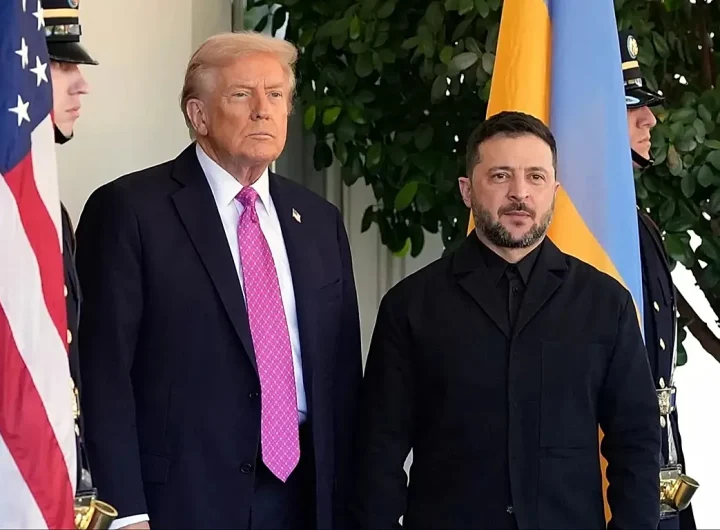 Zelenskyy may visit US this week as Trump suggests ‘big progress’ made
Zelenskyy may visit US this week as Trump suggests ‘big progress’ made 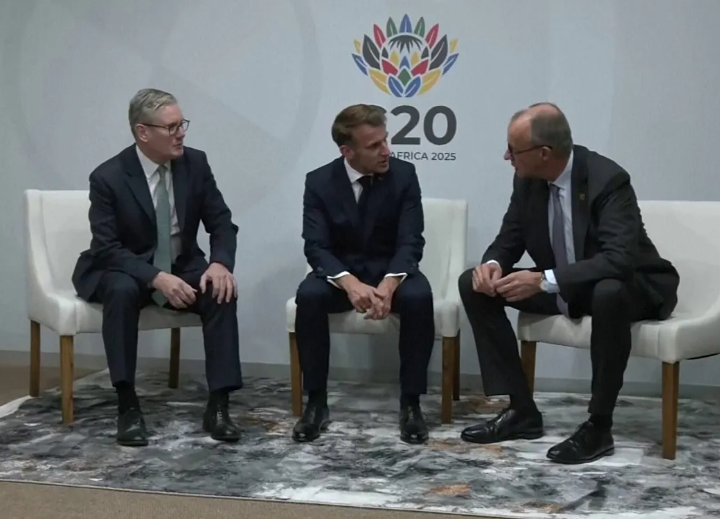 European leaders pushback Trump’s peace plan, call it a draft only
European leaders pushback Trump’s peace plan, call it a draft only 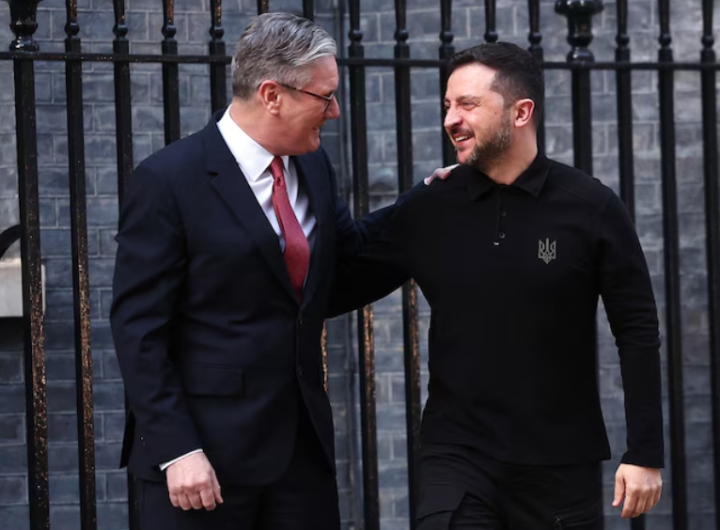 Zelensky, Starmer discuss diplomatic nuances in advancing peace plan
Zelensky, Starmer discuss diplomatic nuances in advancing peace plan 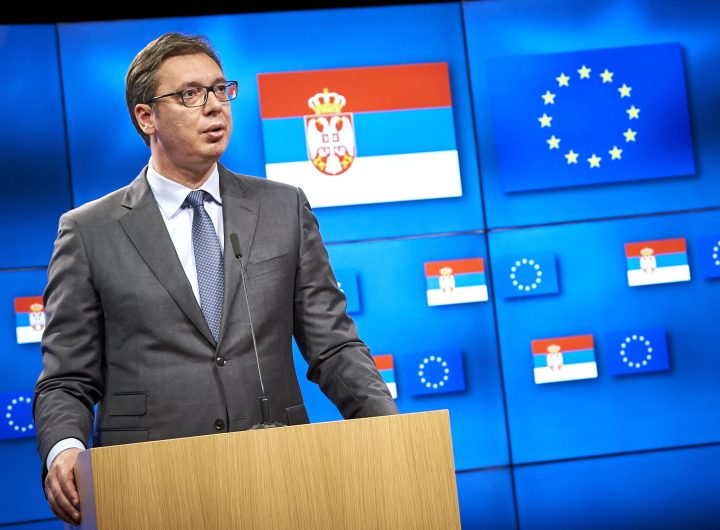 “Vučić does not want a partnership with the EU, and now that is clear to everyone”: What do the attacks on European MPs in the Parliament tell us?
“Vučić does not want a partnership with the EU, and now that is clear to everyone”: What do the attacks on European MPs in the Parliament tell us? 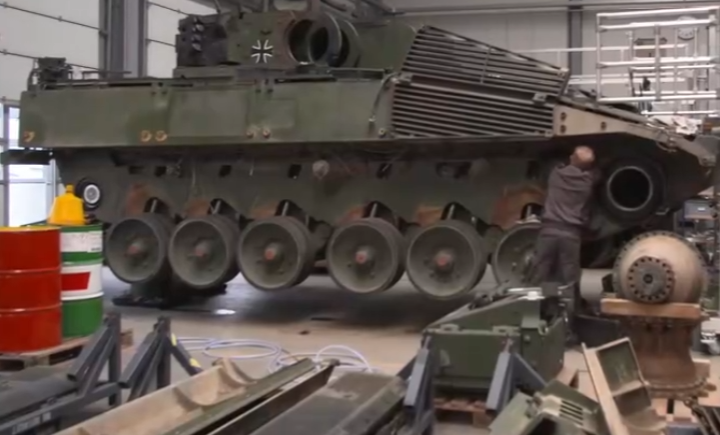 EU aims to retrain 600,000 workers for defence sector to eliminate skills shortage
EU aims to retrain 600,000 workers for defence sector to eliminate skills shortage